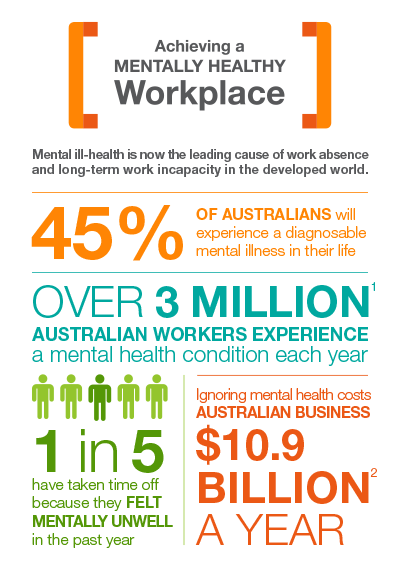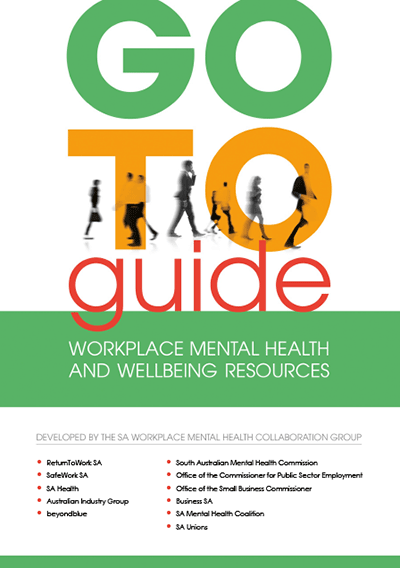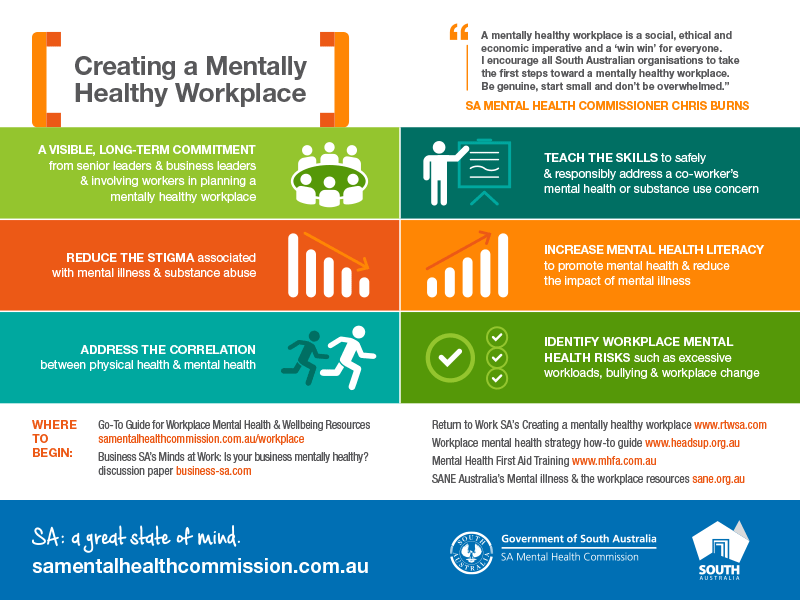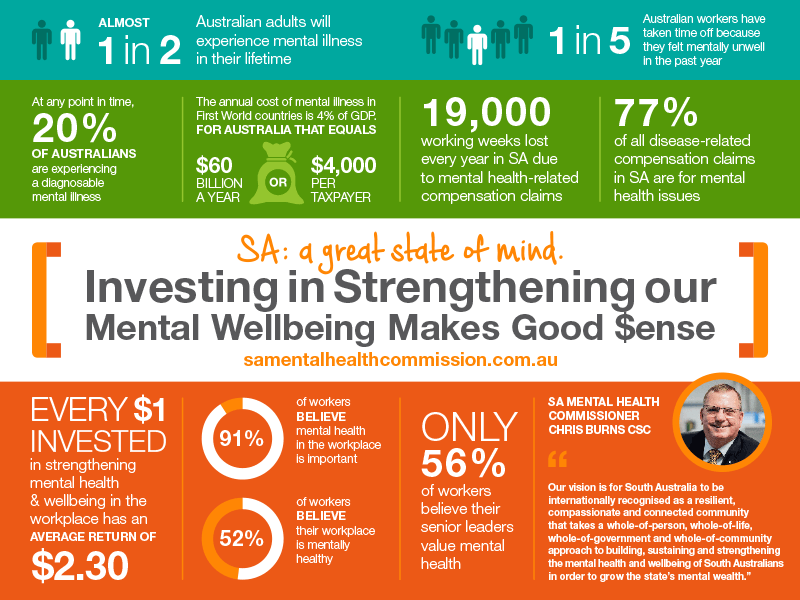“A mentally healthy workplace is about so much more than ticking the compliance box. It’s a social, ethical and economic imperative. It’s about creating a space where everyone can do their best work.”
– SA Mental Health Commissioner Chris Burns CSC
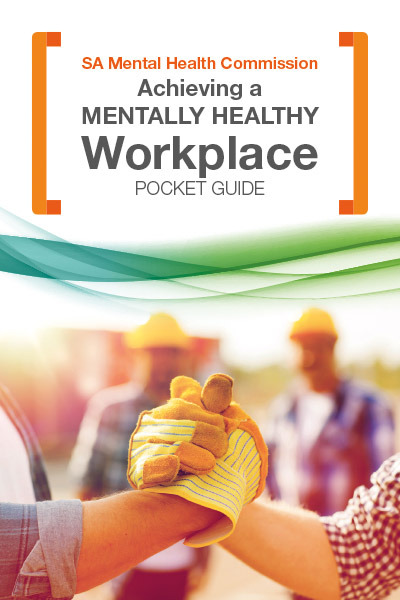 Workplaces can greatly impact the mental health and wellbeing of South Australians, and there is a need to build on work already occurring to generate and grow mentally healthy workplaces in our State.
Workplaces can greatly impact the mental health and wellbeing of South Australians, and there is a need to build on work already occurring to generate and grow mentally healthy workplaces in our State.
During the development of the SA Mental Health Strategic Plan 2017–2022, the SA Mental Health Commission heard from South Australians who described their personal experiences of workplace stress, bullying or lack of support as contributing to their own mental health issues.
As a result, the SA Mental Health Commission works in strong partnership with South Australian communities, businesses, organisations and leaders to outline the social, ethical and economic imperatives of a mentally healthy workplace – and explain why mentally healthy workplaces are as important as physically safe workplaces.
The Commission has successfully collaborated with the private sector, government departments and the community to develop mentally health workplace resources, including videos, pocket guides and discussion papers.
This includes leading the development of a Go-To Guide outlining available workplace mental health and wellbeing resources and made available for download on the Commission’s website. The Collaboration Group consists of the SA Mental Health Commission, Return To Work SA, SafeWork SA, SA Health, Australian Industry Group, beyondblue; the Office of the Commissioner for Public Sector Employment; Office of the Small Business Commissioner; Business SA; the Mental Health Coalition of SA and SA Unions.

Links to the SA Mental Health Strategic Plan 2017–2022:
Strategic Direction 1:
Strengthen mental health and wellbeing and prevent mental illness through high impact promotion, prevention and early-in-life intervention strategies.
Strategic Direction 2:
Community education to improve awareness and reduce stigma.
Strategic Direction 4:
Provide quality supports and services that are easily accessible and meet individual, family and carer needs.
For further information:

